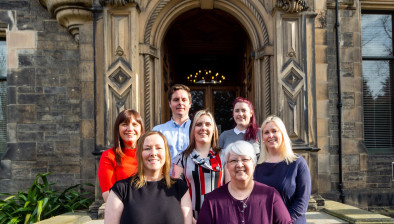Experts lead call for new transformative energy sector
 The Scottish Government must grasp its opportunity to transform the country’s energy sector and provide strong vision for Scotland’s future energy system, according to a group of leading energy experts.
The Scottish Government must grasp its opportunity to transform the country’s energy sector and provide strong vision for Scotland’s future energy system, according to a group of leading energy experts.
Members of Scotland’s Future Energy Taskforce have today released their recommendations ahead of the publication of the Scottish Government’s much anticipated ‘Energy Strategy’ later this week.
Brought together by WWF Scotland to inform the Scottish Government’s new energy strategy, the Taskforce is an independent panel of energy experts from industry and academia.
The Taskforce is calling for a bold vision to decarbonise Scotland’s energy system and hit climate change targets, and says that the Scottish Government will need to use all the powers at its disposal, including targets, incentives and regulation to bring about the changes required.
Among the recommendations is a call for energy use for space heating in buildings to be significantly reduced thanks to strong regulation “which ensures that all new buildings are built to zero carbon standards, underpins incentives for energy efficiency investment in existing buildings, and is driving a long-term investment programme in low carbon heating solutions”.
Dr Keith MacLean OBE, chair of the UK Energy Research Centre advisory board, and facilitator of the taskforce, said: “We welcome the fact that the Scottish Government is for the first time bringing together all of its plans for energy, across the electricity, heat and transport sectors, into one strategy. A major task like decarbonising the energy system will not be achieved on a piecemeal and incremental basis, nor without an integrated long-term plan.
“This new energy strategy is an excellent opportunity for the Scottish Government to assert overall leadership and control over the nation’s energy future. Decisions will need to be made, and ‘low regrets’ options like energy efficiency taken forward now, rather than waiting for silver bullets in the future.”
Professor Jan Webb from the University of Edinburgh said: “Scotland’s relatively old and often draughty buildings account for nearly half of our energy spending, and we have a great opportunity to improve their warmth without turning up the heating. All homes should be renovated to a minimum ‘C’ energy performance rating by 2025, through incentives and standards which build on successful existing schemes. We also need to start planning now for a future sustainable, and renewable, heat supply. Local governments will need to examine the best options for their areas, and be empowered and resourced to develop detailed strategies.”
Dr Jillian Anable, professor of transport and energy at the University of Leeds, added: “Transport has for too long been the laggard sector when it comes to reducing carbon emissions, and this energy strategy is the perfect time to introduce policies to address the shortfall. The Scottish Government should take this opportunity to identify locations for a phased ban in the use of petrol and diesel vehicles from 2025, take steps to decarbonise publicly owned or managed transport fleets and coordinate collaboration between delivery firms to reduce the recent rapid growth in road freight emissions.”
Dr Keith Bell, professor of smart grids, University of Strathclyde, said: “Scotland has made great progress in reducing emissions from electricity generation. The electricity system has the potential to play a major role in decarbonising new sectors like transport and heat as part of a least cost overall strategy that includes a continued focus on meeting people’s needs while using less energy. A smarter electricity system and improved consumer engagement, if done well, can also help people feel more in control of their energy use.”
The Scottish Government is expected to publish a draft energy strategy for consultation later this week.








